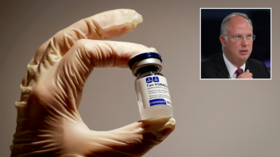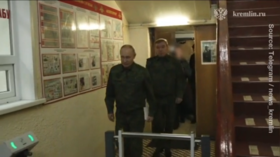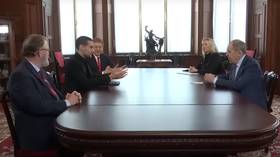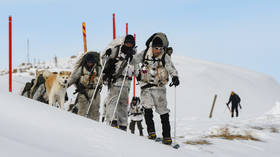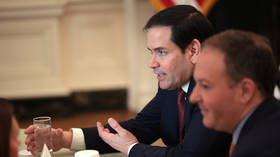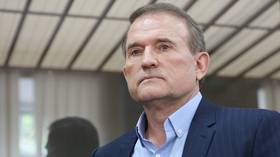Ex-Facebook data scientist says Russia not driving Covid-19 conspiracies online, warning Americans really have themselves to blame
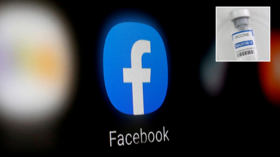
Western commentators have chalked up sharp rises in online anti-vaccine sentiment and anger at Covid-19 rules to Russian bots. Now though, an internet whistleblower has said the reality is it’s actually a homegrown phenomenon.
In an article for the UK’s The Guardian on Wednesday, former Facebook data scientist Sophie Zhang said that the allegations had become a convenient way to blame Moscow, rather than face up to the worrying trends. According to her, the networking giant relentlessly focuses on whether posts are “authentic,” and from actual users, or “inauthentic” and placed by those with ulterior motives.
“When I worked at Facebook, I spent two and a half years combating inauthentic behavior; I was responsible for Facebook taking down inauthentic campaigns by two national governments,” Zhang wrote. Ultimately, she quit the company and became a whistleblower after she claimed the Silicon Valley firm failed to take seriously her findings that it was effectively allowing major abuses of its policies to go ahead in places like Afghanistan, Iraq and Latin America in order to prioritize issues in the West.
Also on rt.com ‘Health is beyond politics’: WHO’s top official in Europe ‘optimistic’ about Russia’s Sputnik V vaccine emergency authorizationHowever, Zhang added, reporting around the company’s latest decision to ban Fazze, a London-based marketing firm with purported ties to Moscow, from its network for “inauthenticity” and misleading anti-vaccine content shows that the wrong things are again being focused on. According to her, the incident has “resulted in significant media coverage of Russian disinformation and lent credence to the narrative that Russia is an important source of the anti-vaccine propaganda that floods social media.”
That, she said, contradicts the reality that the group’s content was far from a driving factor in online Covid-19 sentiment. By Facebook’s own admission, Fazze “received few if any likes, and some were ridiculed by real people.” On the platform’s sister site, “the operation’s Instagram posts attracted around 1,000 likes combined, with most receiving zero.”
Meanwhile, at the same time, the media has, Zhang believes, showed less concern over high-profile coronavirus-skeptics and wildcard physicians sharing similar messages, even when they are sanctioned by social media. She concludes that blaming the widespread anti-vax movement on Russia gives President Vladimir Putin “too much credit... the misinformation is coming from inside the house.”
On the other hand, Russian politicians and scientists have repeatedly claimed that there are clear attempts to undermine the country’s efforts against Covid-19 coming from the West. Kirill Dmitriev of the Russian Direct Investment Fund (RDIF), which financed the development of the Moscow-made Sputnik V vaccine, said in June that its uptake had been hindered by “a powerful disinformation campaign that was launched against Sputnik V from the outset.”
Dmitriev added that “we see attacks on Sputnik V primarily in the Anglo-Saxon press – it is like a kind of octopus combining the tentacles of a number of Big Pharma companies and those of political players who are opposed to Russia.” This, he said, was “aimed at reducing the rate of vaccination in Russia and at raising doubts about the Russian vaccine.”
Sergey Naryshkin, the head of Russia’s Foreign Intelligence Service (SVR), said earlier this year that hold-ups to the approval of Sputnik V by the EU were inexcusable. “This procrastination is related to signals that come from on high,” he said. Naryshkin’s words echoed those of Putin, who claimed in March that overseas interest in the Russian vaccine was growing, despite what he called “deliberate discrediting” and “outright fabrications.”
Like this story? Share it with a friend!
